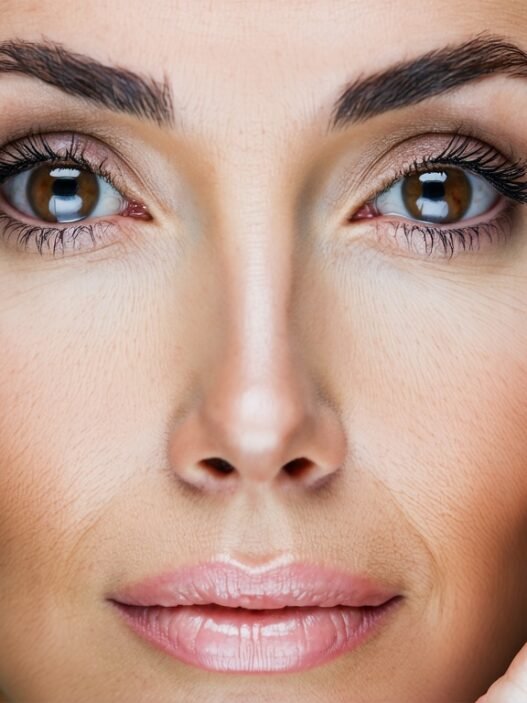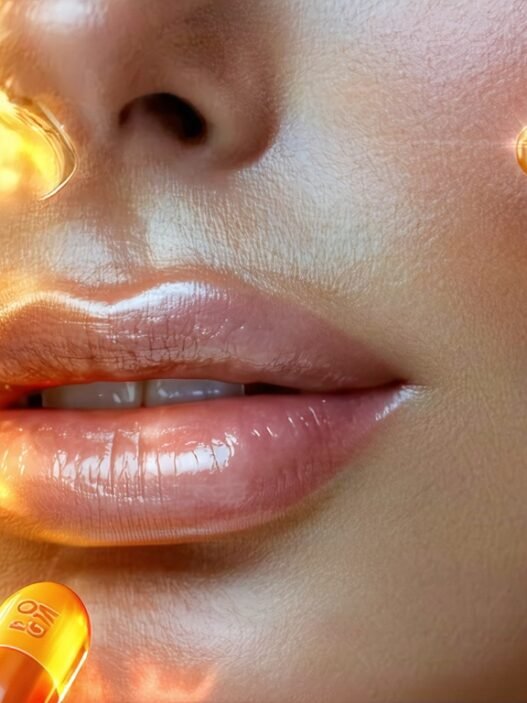Understanding CoQ10
Role of CoQ10 in the Body
Coenzyme Q10 (CoQ10) is a potent antioxidant naturally produced by the body. It plays a vital role in the growth and maintenance of cells. CoQ10 levels tend to decrease with age, and can be significantly lower in individuals with certain conditions like heart disease or those on cholesterol-lowering drugs known as statins (Mayo Clinic).
In its primary function, CoQ10 is crucial for the production of energy in cells. It works within the mitochondria, the energy powerhouse of cells, to produce adenosine triphosphate (ATP), the main energy currency of the cell. Additionally, CoQ10, in its reduced form, acts as an antioxidant outside the mitochondria. It stabilizes cellular membranes by protecting against peroxidation of phospholipids, slows the chain propagation of Reactive Oxygen Species (ROS), and regenerates oxidized vitamins C and E (J Clin Aesthet Dermatol).
CoQ10 also sustains skin function by reducing the damage caused by lipid peroxidase to lipids, proteins, and DNA, protecting against the signs of aging such as wrinkles. For more on how CoQ10 benefits the skin, visit our article on coq10 benefits for skin.
Natural Sources of CoQ10
CoQ10 is naturally found in several dietary sources, though the quantities in food are usually not enough to significantly raise CoQ10 levels in the body. The most notable dietary sources include:
- Meat: Beef, pork, and chicken have some of the highest amounts of CoQ10.
- Fish: Fatty fish such as salmon, mackerel, and sardines are rich in CoQ10.
- Nuts: Peanuts and sesame seeds provide a decent amount of CoQ10.
| Food Source | CoQ10 Content (mg/100g) |
|---|---|
| Beef | 3.1 |
| Pork | 2.6 |
| Chicken | 1.4 |
| Salmon | 0.8 |
| Mackerel | 0.8 |
| Sardines | 0.5 |
| Peanuts | 2.6 |
| Sesame Seeds | 1.0 |
Data Source: Mayo Clinic
Given that food sources alone may not be sufficient, CoQ10 dietary supplements are widely available. These come in various forms such as capsules, chewable tablets, liquid syrups, wafers, and intravenous (IV) formulations. Supplements can help prevent or treat certain heart conditions and migraine headaches. For a detailed breakdown of the best CoQ10 supplements, see our article on best coq10 supplements.
By understanding the role and sources of CoQ10, individuals can make informed decisions about incorporating this essential nutrient into their diet and skincare routines. Interested in further exploring how CoQ10 can help maintain a youthful appearance? Discover the coq10 anti-aging properties on our site.
Benefits of CoQ10 for Skin
CoQ10, or coenzyme Q10, is a naturally occurring antioxidant in the body known for its myriad benefits. In the realm of skincare, CoQ10 has shown promising results in combating signs of aging and improving skin elasticity.
Reduction of Wrinkles and Aging Signs
Daily supplementation with CoQ10 has been clinically proven to significantly reduce wrinkles and fine lines. Studies show that taking 50 to 150 mg of CoQ10 daily for 12 weeks can lead to a noticeable reduction in wrinkles and microscopic lines while improving overall skin smoothness (PubMed). This study used a water-soluble form of CoQ10 with superior bioavailability, ensuring that the supplement was effectively absorbed by the body.
| CoQ10 Dosage | Duration | Results |
|---|---|---|
| 50-150 mg | 12 weeks | Reduction in wrinkles and lines, improved skin smoothness |
Research also suggests that when CoQ10 is applied directly to the skin, it can help mitigate oxidative damage caused by UV rays, reduce the depth of wrinkles, and offer significant antioxidant protection (Healthline).
For a more comprehensive understanding of how CoQ10 can benefit your skin, and to read about the best CoQ10 products, visit our article on coq10 and skin health.
Improving Skin Elasticity
Beyond merely reducing wrinkles, CoQ10 has been shown to enhance skin elasticity. This improvement stems from CoQ10’s ability to stabilize mitochondrial activity and exert strong antioxidant properties, which aid in the regeneration of skin processes that combat the signs of aging (Journal of Clinical and Aesthetic Dermatology).
For topical applications, studies highlight that skincare products containing CoQ10 can significantly improve the antioxidative status of the skin, boost moisturization, and reduce UVA-induced damage (NCBI).
| Application Method | Duration | Results |
|---|---|---|
| Topical | 1-2 weeks | Improved antioxidant status, increased moisturization, reduced UVA damage |
For more detailed guidance on incorporating CoQ10 into your skincare routine and choosing the right products, see our suggestions on coq10 skin care products.
For further insights into using CoQ10 to maintain youthful, firm, and hydrated skin, check out our articles on coq10 and skin wrinkles and coq10 for skin elasticity.
CoQ10 for Overall Health
While CoQ10 is widely recognized for its anti-aging benefits, its advantages extend far beyond skincare. This section explores the broader health benefits of CoQ10, focusing on its impact on fertility, brain health, and prevention of chronic diseases.
Impact on Fertility
CoQ10 plays a significant role in enhancing fertility, particularly in men. Studies indicate that supplementing with CoQ10 can improve sperm activity and concentration. This enzyme serves as a powerful antioxidant, protecting sperm cells from oxidative damage, which can lead to improved sperm count and quality.
| Benefit | Impact |
|---|---|
| Sperm Activity | Increased |
| Sperm Concentration | Improved |
| Antioxidant Protection | Enhanced |
These benefits can be a significant advantage for couples trying to conceive. Including CoQ10 in daily supplements may be advised, and for more information, consult our guide on best coq10 supplements.
Benefits for Brain Health
The brain is particularly susceptible to oxidative stress due to its high fatty acid content and oxygen demand. CoQ10 supports brain health by reducing oxidative damage and improving mitochondrial function. Research links low levels of CoQ10 in the blood with increased neurotoxicity, contributing to neurodegenerative conditions like Alzheimer’s and Parkinson’s disease (Healthline).
| Condition | Potential Benefit of CoQ10 |
|---|---|
| Alzheimer’s Disease | May slow progression |
| Parkinson’s Disease | May reduce harmful compounds |
| Neurotoxicity | Reduced |
These protective effects make CoQ10 a valuable nutrient for maintaining cognitive health and potentially slowing the progression of degenerative brain diseases. Visit our article on coq10 and cellular health for additional insights.
Role in Preventing Chronic Diseases
CoQ10’s role extends to preventing chronic diseases, thanks to its antioxidant properties. CoQ10 helps combat oxidative stress, a key factor in the development of chronic illnesses. One notable area is its effect on cardiovascular health. For a detailed exploration, refer to our article on coq10 and heart health.
Additionally, CoQ10 may reduce the severity, duration, and frequency of migraine episodes in adults, attributed to improved mitochondrial function (Healthline). Mitochondria, where CoQ10 resides, play a crucial role in cellular energy production and function, impacting various chronic conditions.
By understanding the broader health implications of CoQ10, one can appreciate its multifunctional benefits, from fertility and brain health to preventing chronic diseases. For more on the science behind its anti-aging properties, consider exploring coq10 antioxidant benefits.
Application and Absorption of CoQ10
Topical Application Benefits
Topical application of CoQ10 has been shown to offer numerous benefits for the skin, especially in combating signs of aging such as wrinkles and fine lines. CoQ10, when applied directly to the skin, reduces oxidative damage caused by UV rays and promotes antioxidant protection (Healthline). This can result in a noticeable decrease in the depth of wrinkles.
Studies have demonstrated that products formulated with CoQ10 significantly reduce the depth of cutaneous wrinkles associated with aging, both in ex vivo (outside a living organism) and in vivo (within a living organism) settings. By stabilizing cellular membranes and protecting against the peroxidation of phospholipids, CoQ10 plays a critical role in maintaining healthy skin.
Additionally, CoQ10 can regenerate oxidized vitamin C and E, enhancing the overall antioxidant defense system in the skin (J Clin Aesthet Dermatol). This multi-faceted approach helps to slow down the chain propagation of reactive oxygen species (ROS), further protecting the skin from oxidative stress and aging.
Absorption in Skin Layers
Understanding how CoQ10 is absorbed into the skin layers is crucial for maximizing its benefits. CoQ10 is a small, lipid-soluble molecule, which allows it to penetrate the skin effectively. When applied topically, CoQ10 is absorbed into the stratum corneum (the outermost layer of the skin) and can reach deeper layers, including the epidermis and dermis.
The absorption of CoQ10 is aided by its ability to integrate into the lipid matrix of the skin. This allows it to efficiently enter the cells and reach the mitochondria, where it plays a vital role in cellular energy production and antioxidant protection.
To enhance the efficacy of CoQ10 in skincare products, it is often combined with other active ingredients that promote absorption and synergistic effects. Some key ingredients to look for in CoQ10 skincare products include:
- Hyaluronic Acid: Helps to hydrate and plump the skin.
- Vitamin E: Provides additional antioxidant protection.
- Peptides: Support collagen production and skin repair.
When selecting CoQ10 skincare products, it is important to consider the optimal concentration of CoQ10 and examine the key ingredients in skincare to ensure maximum effectiveness.
By incorporating CoQ10 into your skincare routine, you can take advantage of its powerful anti-aging properties, including reduced wrinkles and improved skin elasticity. For more information on the benefits of CoQ10 for skin, visit our article on coq10 benefits for skin.
Safety and Considerations
Potential Side Effects
CoQ10 supplements are generally considered safe for most individuals when taken as directed. However, as with any supplement, there may be some potential side effects to be aware of:
- Digestive Problems: Some people may experience mild digestive issues such as stomach upset, diarrhea, or nausea. These side effects are typically mild and may diminish as the body adjusts to the supplement (Mayo Clinic).
- Allergic Reactions: Though rare, some individuals may experience allergic reactions, such as rashes or itching.
- Insomnia: In some cases, CoQ10 can cause insomnia or trouble sleeping, especially if taken later in the day.
If any severe reactions occur, it’s important to discontinue use and seek medical advice.
Interaction Warnings
CoQ10 supplements may interact with various medications and health conditions. It’s essential to consult with a healthcare provider before starting any supplement regimen to avoid possible interactions. Key interaction warnings include:
- Anticoagulants: CoQ10 may reduce the effectiveness of blood-thinning medications like warfarin, potentially increasing the risk of clot formation.
- Chemotherapy: CoQ10 may interfere with certain chemotherapy treatments. Always consult a healthcare provider when undergoing cancer treatment.
- Blood Pressure Medications: As CoQ10 can lower blood pressure, there may be an additive effect when combined with prescription blood pressure medications, leading to hypotension.
Table of Potential Interactions
| Medication Type | Possible Interaction |
|---|---|
| Blood Thinners (e.g., Warfarin) | Reduced effectiveness |
| Chemotherapy Drugs | Potential interference |
| Blood Pressure Medications | Additive effect (risk of hypotension) |
For further reading on the benefits of CoQ10 for skin and overall health, explore our sections on coq10 and skin health and coq10 and heart health. Always consult your healthcare provider to determine the best approach for integrating CoQ10 into your wellness routine.
Choosing CoQ10 Skincare Products
Selecting the right CoQ10 skincare product is vital for reaping its anti-aging benefits. Here are some factors to consider.
Optimal Concentration
The concentration of CoQ10 in skincare products can significantly impact their effectiveness. According to Skin Type Solutions, the optimal concentration of CoQ10 in skincare products ranges from 0.02% to 0.05%. This range provides maximal benefits without altering the appearance of the product. Low concentrations might not yield the desired effects, whereas higher concentrations could cause the product to have a yellow hue without enhancing efficacy.
| CoQ10 Concentration | Benefit | Appearance |
|---|---|---|
| Less than 0.02% | Insufficient efficacy | Clear |
| 0.02% – 0.05% | Optimal efficacy | Clear to slight yellow |
| More than 0.05% | No additional benefit | Yellow |
Key Ingredients in Skincare
When choosing CoQ10 skincare products, it’s essential to look for additional beneficial ingredients that can complement the effects of CoQ10. Some of these key ingredients include:
- Hyaluronic Acid: Known for its hydrating properties, it helps retain moisture in the skin, boosting the plumping effect.
- Vitamin E: Acts as a powerful antioxidant that protects the skin from environmental stressors and helps improve its elasticity (PubMed).
- Peptides: Amino acids that support collagen production, improving firmness and reducing the appearance of wrinkles.
- Retinol: A form of Vitamin A that accelerates cell turnover, promoting smoother, more youthful skin.
To explore more about key ingredients and their benefits in conjunction with CoQ10, head to our guide on coq10 for anti-aging skincare.
Keep these considerations in mind to choose the best products, optimize the anti-aging effects of CoQ10, and maintain youthful, vibrant skin. For more insights on the benefits of CoQ10, check out our articles on coq10 benefits for skin and coq10 and skin health.




















